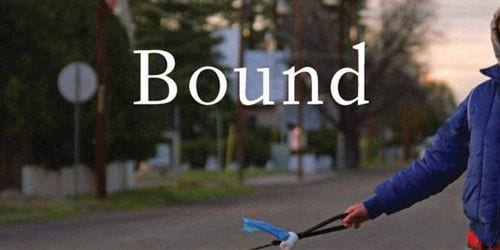
Some time ago, Antonya Nelson was named by The Huffington Post as one of America’s 15 Most Overrated Writers. Lists like that can be fun in a casual, Hey-did-you-hear-about-this kind of way, but needless to say, they hardly carry any kind of definitive authority. And thank God for that! Literature—or any kind of art—is a subjective experience, and one person’s overrated blowhard is somebody else’s consciousness-expanding genius.
While I recognized a few names on that list (John Ashberry and Jhumpa Lahiri FTW), many were unknown to me, and one of them was Antonya Nelson. The author of nine books, including 2009’s short-story collection Nothing Right, Nelson has been on the scene for a while, but Bound is her first novel in ten years, and my introduction to her work. Despite the lashings of the tastemakers over at The Huffington Post (“she’s a dull craftswoman who never questioned realism”), I found Bound to be a very good book, indeed.
Maybe I’m just a sucker for multi-stranded storylines and intricate structures. The novel opens with a compelling jolt: a car wreck at the bottom of a ravine in the Colorado mountains, the tires still spinning, the driver dead, the driver’s miraculously-surviving dog nosing the body. Dog and car both belong to the dead driver, Misty, whose teenage daughter Cattie has recently gone east to a private boarding school, and who learns of her mother’s death only after some time. When she finds out, she will launch herself into an unexpected and none-too-planned-out pilgrimage.
While all this is going on, Misty’s best friend from high school, Catherine, is battling a few issues herself. So is Catherine’s husband Oliver, a man 20 years her senior, twice divorced and thrice married, and currently embarking on another philandering relationship with a woman less than half his age. These various lives and others will interconnect, forming the backbone of the novel. Catherine has been out of touch with Misty for decades, but her friend’s death ironically throws them into closer contact than they have been since high school.
Oh, and everybody has dogs, in case the ideas of leashes and freedom aren’t clear enough already. Bound is a story whose themes are evident from the title onward. These characters are all struggling with the various relationships they are a part of—with parents and children, with spouses and lovers and responsibilites both chosen and thrust upon them. The web of entaglements could be sketched out in a schematic diagram, yet the events roll along so effortlessly, propelled by plainspoken, naturalistic prose, that the symbolism never grows overbearing or obvious.
That Huffington Post criticism quoted above—that Nelson “never questioned realism”—seems particularly odd given that, oh, about 98 percent of American fiction these days is written in more or less strictly realistic mode. (I pulled that number out of my butt, but you get the idea. Quick, make a list of the last 20 American magical-realist phantasmagorias you’ve read lately. Yeah, I’ll wait.) Nelson, it seems to me, should be praised for her adroitness with language, her ability to sketch out a scene or a moment or point of view with a few carefully-chosen words. In the old days, there was a name for that: it was called “good writing”.
The third-person point of view shifts from one chapter to the next, rotating through Catherine, Oliver and Cattie. Each section manages concise observations: “Unlike most teenage girls,” notices Oliver, “Cattie didn’t seem to think of herself as the star of the show so much as an audience member.” Elsewhere, sentences pile on the clauses while keeping the imagery precise: “The man was carelessly handsome, beautiful by virtue of youth, his blond hair messy, his slackness more like something sculpted than something abandoned, his mouth open and his youthful white teeth showing.” Some sentences are carried along with a certain understated verve courtesy of run-ons: “Dark came on, she nearly ran out of gas, she was riding on at least two flat tires, ruining their rims, and her oil pan was drizzling from several punctures, but eventually she found the pavement.”
This kind of prose, which appears simple and clean and therefore—wrongly—easy to do, is perhaps less attention-grabbing than the stylistic pyrotechnics of, say, TC Boyle or Martin Amis or Toni Morrison; but surely it is simplistic to claim that the writing is somehow useless as a result.
There is a good deal of plot in this novel, which grows more convoluted as the various storylines develop and intertwine. Despite this abundance of material, the story never grows confusing and the plotlines remain clear throughout. In part, this is because the trio of main characters are so throughly different in terms of age, gender, and social standing; in part this is because Nelson writes well and chooses details with meticulous concern. Bound was the first book I read by this author, but it will certainly not be the last.

![Call for Papers: All Things Reconsidered [MUSIC] May-August 2024](https://www.popmatters.com/wp-content/uploads/2024/04/all-things-reconsidered-call-music-may-2024-720x380.jpg)



